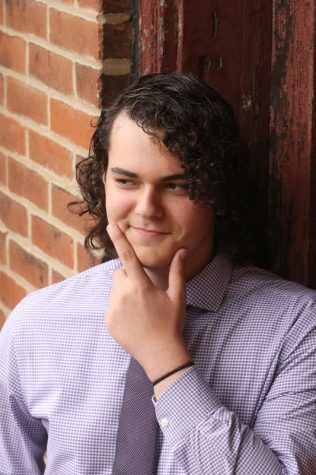What I Can Do
November 23, 2022
When tragedy struck at the Fourth of July parade, I wasn’t there. Any other year I would have been. Actually, I was at a different Independence Day event, a performance hosted by the Friends of Taiwan Foundation on Michigan Avenue in downtown Chicago. I was to perform a dance with classmates from my Mandarin immersion program and the unbelievably polite kids from the Taiwanese cultural center who agreed to carry us under their wing. I heard about the shooting from the news alert on my phone.
And that’s something. Half of my extended family lives in Highland Park. If a new restaurant opens up there, I hear about it face-to-face from at least four different people, just like I would for any new goings-on in Deerfield. Hearing anything about your hometown from the internet is odd. It is an invasion of privacy. Why should the world get to know about it before you do?
Almost immediately after I saw the news, I got a call from my grandmother. She was there. And she wasn’t far away from the shooter; people were running towards her from only a hundred feet away. She called to tell me what happened very matter-of-factly. There was a shooter at the parade and she was now at my aunt’s house. And then she asked if I was safe.
That became a theme for the rest of the day. My dad called; he gave me the run-down on where all my family was, how no one was hurt, and then asked if I was doing alright. My sister texted me only to ask if I was okay.
Something seemed so wrong to me about that. My grandma and my aunts were there. They had the traumatizing experience, not me. How strange it is that anyone was worried that Noah, safely in Chicago, passing out free meals of popcorn chicken and milk tea was, oh Lord, having feelings! I don’t mean to mock. It’s just that, at the time, I truly thought that how I felt didn’t matter. And it didn’t. My feelings should not have been anyone’s priority. Really, because I was miles away from what happened, and I didn’t witness anything. Nothing I could say would be urgent. But I realized very quickly that being asked if I were alright was to make me feel better, rather, it works in the opposite direction.
My family was frenzied that day, my father and grandmother especially. When you are worried, it is a most terrible thing to fear that there is nothing you are able to do. Those people who reached out to me—that was something they could do, to check if I’m alright. Even if I were the last person who needed that. That day, I picked up the phone with urgency each time. Maybe I felt that fear a little bit too.
The Fourth Project is the “something” that I can do. I can give my classmates a voice. And I’m editor of the paper; I feel I’m obligated to use my platform for this. When our initial schoolwide outreach elicited only one response, I began to worry that my efforts were just as effectually pointless as those messages I received about my own feelings. But then I read the response, and I read her essay. You, go read it. Matilda Swartz: if she’s the only student The Fourth Project ends up publishing, I still believe it was worth it. It’s proof that what we students have to say needs to be said.

